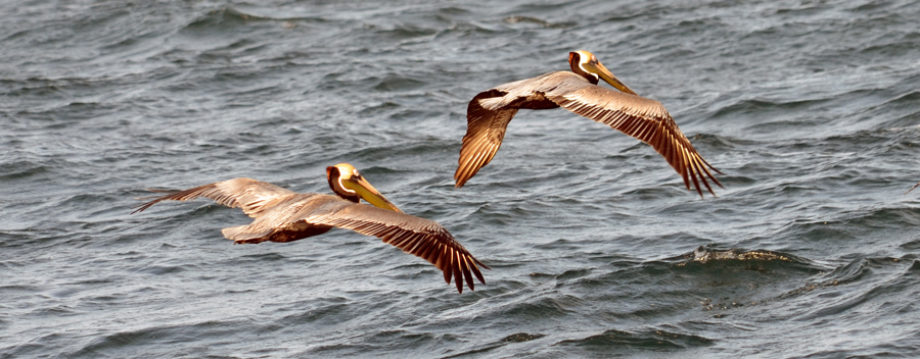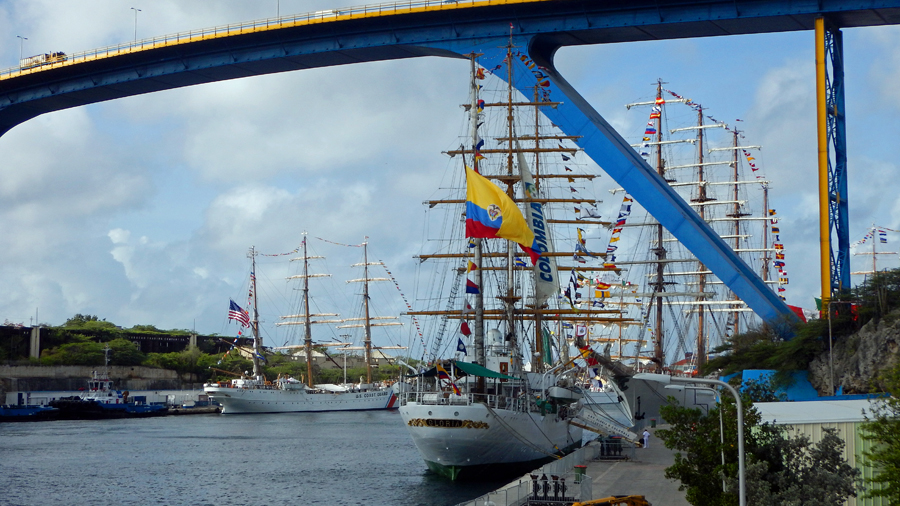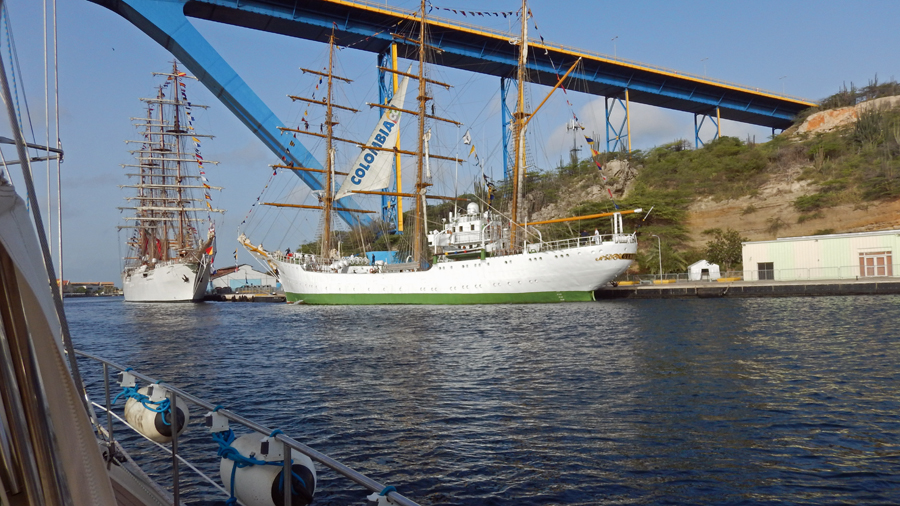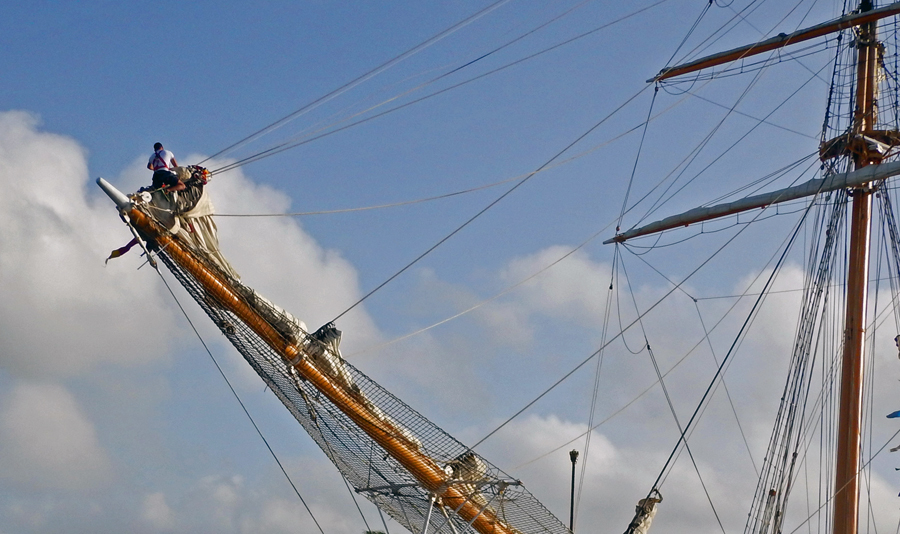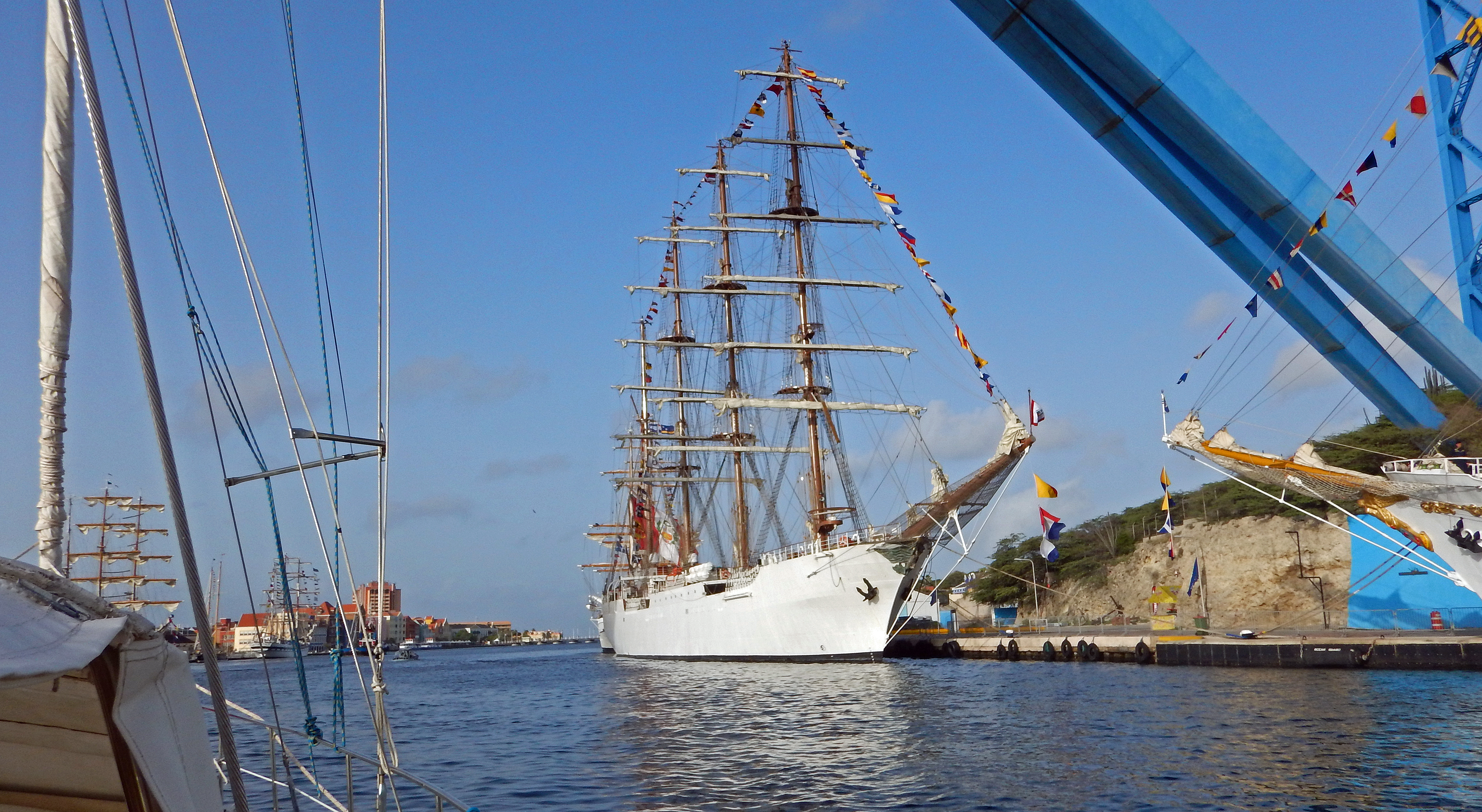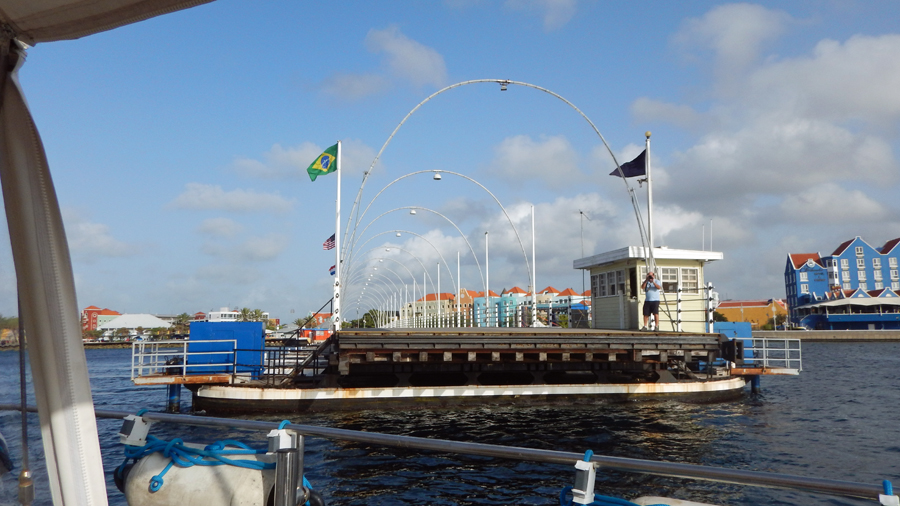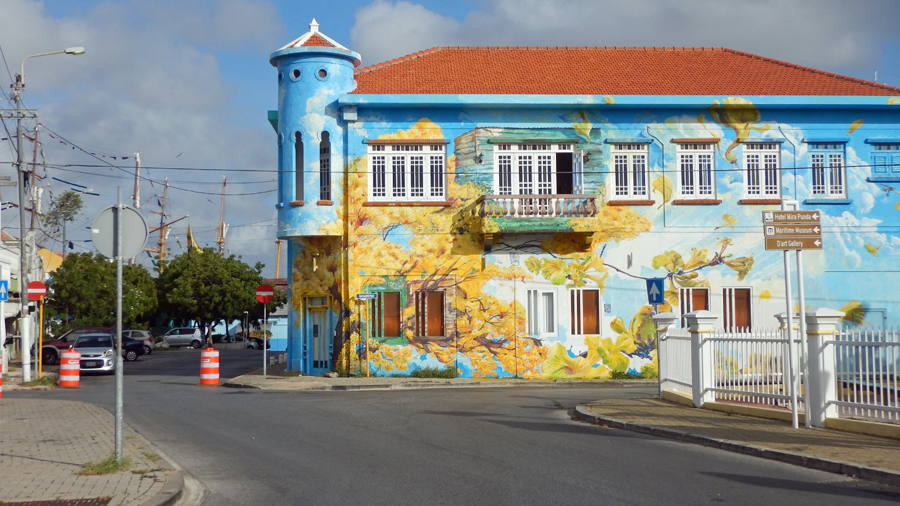
We spotted this really cool building on our way to check-out with Curacao customs and immigration officials
When I retire I want to travel. How many times have you heard someone say this? Or, I want to see the world. And even, I’ll have all the time in the world and can go slowly and take it all in. Sounds like a good plan doesn’t it? But, doing it is not easy. Government red tape is one of the things most annoying when you travel such as we do.
Cindy and I are looking at going to Colombia. Everyone we have ever met who has traveled Colombia tells us how beautiful it is and we should visit there. They also advise us to plan to spend a lot of time there. We would love to spend as much time as possible there but the Colombian government won’t let us. From what we have managed to decipher so far on the internet, it seems as though we are limited to a 90-day visa. We will need to hire an agent to process our passports and boating documentation. Arriving by private boat has added challenges. If the boat stays too long it could become subject to taxes or duty. Or worse, Cream Puff could be impounded. This is true for all countries we visit. Needless to say, we have to do research prior to setting sail to a country and we need to make darn sure what we are reading is correct. Even a small mistake can be costly.
So how long can we stay in Colombia and take in all the beauty? The truth is, we’re still unsure. We know we can get a visa for 90 days. To go beyond this an extended visa application must be filed by our agent within the first 30 days of us being there. Colombia is a difficult country to navigate bureaucracy. They are not alone.
I recently read about a long-time cruising sailor who arrived in the BVI. He had visited the BVI many times before and knew he needed to check into a port of entry before proceeding to any other location. On this particular instance he decided against following the rules. He dropped anchor in a bay not considered a port of entry and did this because he was tired and had a difficult passage. He really felt he needed a good sleep before continuing any further. His logic was, he would proceed the next day to the port of entry and check in with customs and immigration. That evening his vessel was approached by the police and they asked to see his clearance papers. Of course, he didn’t have any. He received a citation and was told to immediately move his vessel to the closest port of entry where he was required to see a magistrate the next day. He received a hefty fine for his poor decision.
In Bonaire, we met a couple who recently became a couple. Bryan and Noustha met while in Bonaire. Bryan is American and Noustha is Dutch. They fell in love and are trying to figure out their next steps. Bonaire is throwing them out at the end of July because their visitation visas are expiring. A huge part of their decision now is trying to figure out where they can go next and still be together. Noustha works as an underwater photographer and therefore needs to have a work visa or artisan visa. This is much harder to get. They are thinking about heading to Curaçao but would much prefer to stay in Bonaire if they could. Bonaire is one of the more difficult countries to return to. Not only do they limit a stay but a visitor cannot return to the country for the next 90 days if they stay for a full 90 period.
At least the Bonaire limits are clearly defined. If a European or Canadian visits the USA the American government will allow them to stay for 90 days without a visa. But the USA is very unclear about how long the same person must leave before being allowed to return and visit America again. From the (USA Customs and Border Protection) CBP website:
When traveling to the U.S. with the approved ESTA, you may only stay for up to 90 days at a time – and there should be a reasonable amount of time between visits so that the CBP Officer does not think you are trying to live here. There is no set requirement for how long you must wait between visits.
So how is a visitor supposed to know when they can go back? They don’t. It is entirely possible they could arrive in the USA by airplane and immediately get sent home based on the whim of a single CBP agent. That’s quite a risk a person would have to take.
I had a good friend whose plan in retirement was to travel extensively. We often spent time talking about our yens to travel. He had no desire to travel like us but wanted to go by land instead, not that there is anything wrong with that. He planned to sell his home in the USA and travel the globe before settling down somewhere back in the USA in his rocking chair. Sounds like a good plan, right? The first part of the plan was to go to Europe and rent a house for a couple of years. He thought he could stay in Europe and travel about freely. It didn’t dawn on me to tell him there was a flaw in his plan because I could do this being a European citizen. But, it turns out as an American he cannot. Europe limits visitors to 90 days within a 180 period. If he used a couple of tactics such as living in Italy for the first 90 days and then moved to France, he could stay for 180 days straight in the EU before having to leave. So, then he would have to go to a non-EU country such as Turkey and stay there for a while before he could return to any EU countries. When he was done in Europe his thought was to rent a home in Asia for a couple of years and travel about the orient. While this all sounds wonderful, the governments of the world are never going to let travelers do this.
Why won’t governments of countries allow us to travel for extended periods of time in their countries? We are self supporting. We contribute to local merchants and the overall economy. We behave ourselves. We don’t take up too much space. Why should any government care if we want to visit for a year or two? We’re not hurting anything. Is this really fair? I think not.
People who travel extensively know all the stuff I just wrote about. They also know there are often ways to evade the rules. Some countries do offer visa extensions. The challenge is knowing what is allowed and what is illegal. Reading something on the internet doesn’t make it right or factual. Unless of course, it is on a Government site. Many of the Countries we visit have very limited information posted. Or in some cases, such as my example of the USA, information posted is just darn confusing. I often have visions of standing in court before a magistrate having to explain why I had the wrong visa or boat documentation. Somehow I don’t think telling them how I read that it was okay on the internet will fly. I can hear the gavel coming down now.
I met a British couple who planned to travel all the way back to London, by airplane, from the Caribbean because they wanted to visit the USA by boat. They wanted to stay for more than 90 days and decided based on what they had read thought they needed a visa before arriving in the USA. They were going to apply for a visa at the American embassy in London (the USA requires an individual to appear in person for a visa application). I told them I didn’t think they needed to go to all of that expense and they could get a visa in the USA. But, I was probably wrong about that and I’m glad they didn’t listen to me. I can barely sort out our own travels, let alone give good solid advice to others.
Now, if you think all of this is very confusing, you’re absolutely right. It’s darn confusing. And to make matters worse we have to re-learn the rules every time we enter a new country. Very often the rules for how long our boat can stay and how long we can stay do not align. It can be very tiresome working through all of this. And, to make matters even worse still, we often don’t speak the language of the country we are visiting. So, next time you see a multi-lingual publication from your government, please don’t get upset by this. It Is not a waste of money and they are not pandering to a minority group. Think about us trying to bumble through the bureaucratic processes in a foreign country and have a little pity for travelers who don’t speak the language and don’t know all the regulations yet. In other words, people like us. We might want to visit your beautiful country one day. And, we really don’t want to get arrested when we do.
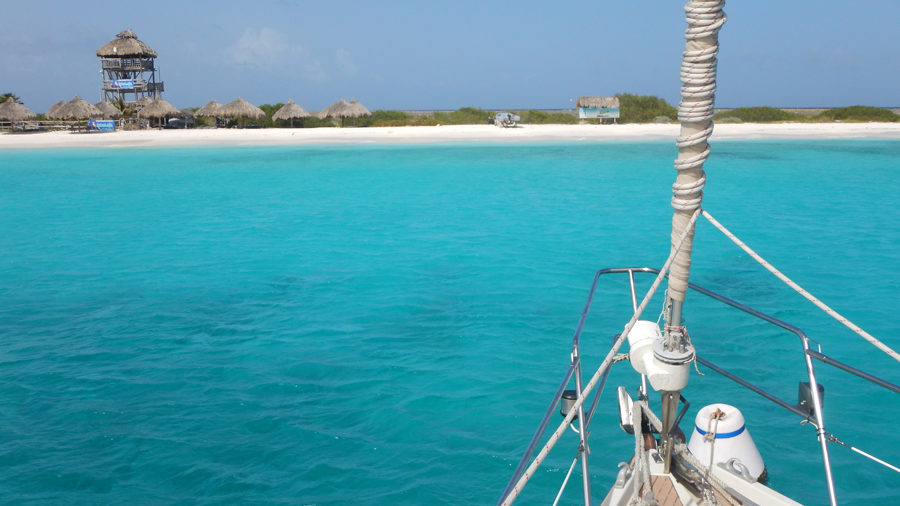
This is why we put up with the government red tape – Klein Curaçao (an uninhabited island off main Curaçao – an overnight stop on the way to Bonaire – and a great place to swim with turtles)
